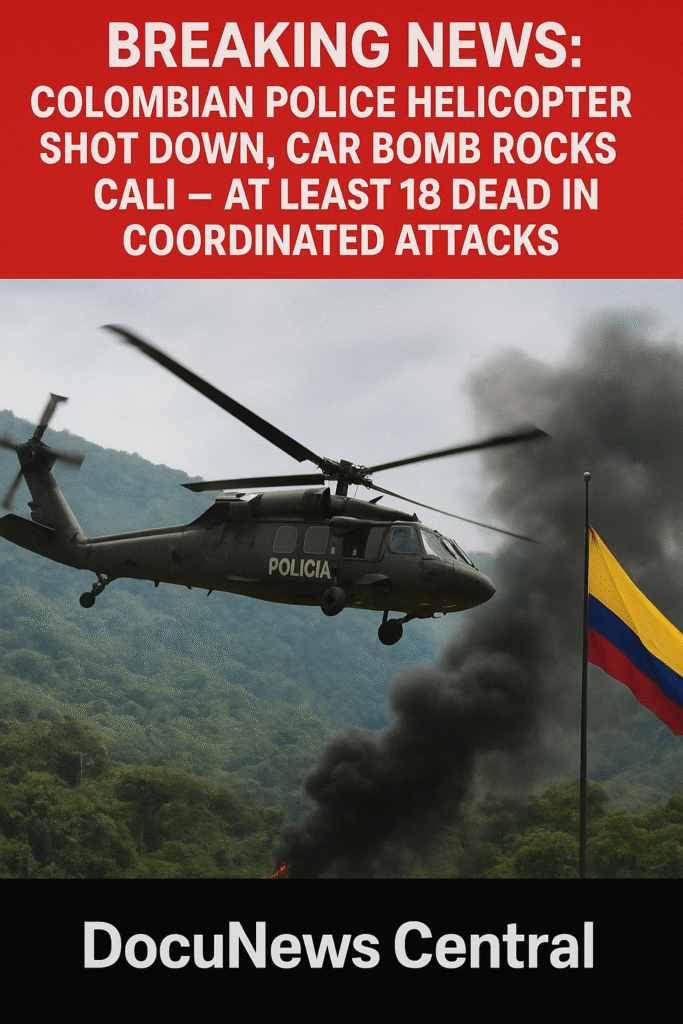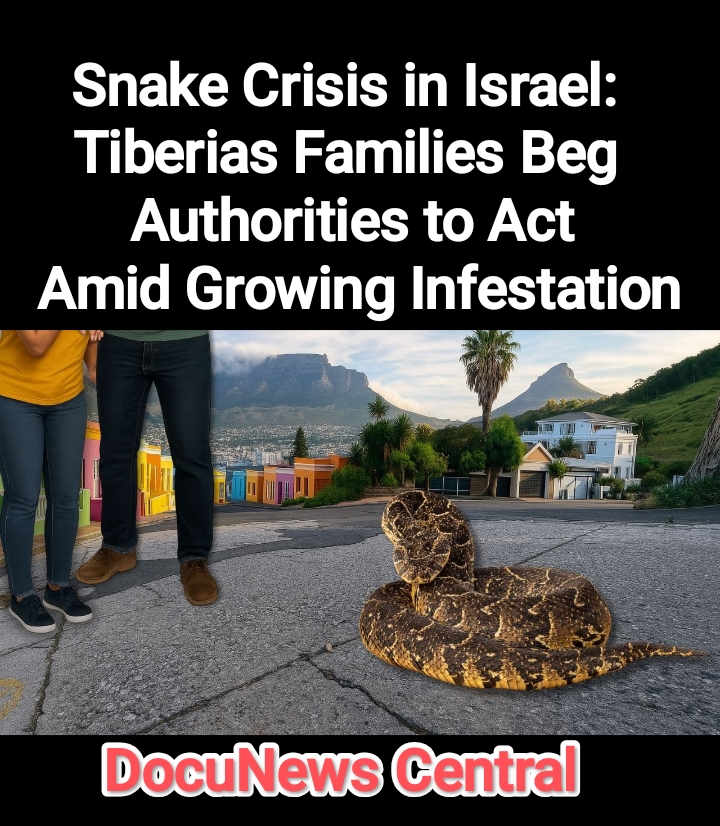
🚨 BREAKING NEWS: Colombian Police Helicopter Shot Down, Car Bomb Rocks Cali — At Least 18 Dead in Coordinated Attacks
Bogotá, Colombia – Friday, August 22, 2025
Colombia is reeling from one of its deadliest days in recent years as a police helicopter was shot down in mid-air and a car bomb exploded outside a military air base, leaving at least 18 people dead and dozens more injured. Authorities have described the incidents as “terrorist acts” orchestrated by dissident factions of the Revolutionary Armed Forces of Colombia (FARC), shattering a fragile peace in the country.
Police Helicopter Brought Down Mid-Air
The most harrowing attack unfolded in the rural municipality of Amalfi, Antioquia, where a Colombian National Police UH-60 Black Hawk helicopter carrying officers on an anti-narcotics mission was suddenly struck mid-air.
According to officials, the aircraft was targeted by a weaponized drone believed to have been operated by FARC dissidents. The impact caused the helicopter to spin out of control before crashing into the dense jungle terrain.
“We have lost some of our bravest men,” said General William Salamanca, Colombia’s National Police Chief, his voice heavy with emotion. “This is not just an attack on the police—it is an attack on the Colombian state itself.”
Out of 16 officers on board, at least 12 were killed instantly, while four survivors were pulled out alive but critically injured. Emergency teams battled for hours to recover the bodies amid the wreckage, with locals describing the horrific scene of burning debris scattered across the hillside.
Car Bomb Shatters Cali
While the nation was still absorbing news of the helicopter tragedy, another devastating attack shook Cali, Colombia’s third-largest city.
At around 10:30 a.m. local time, a car bomb detonated outside the Marco Fidel Suárez Air Base, killing at least 6 people and injuring dozens of civilians and military personnel. The blast shattered windows across nearby neighborhoods, sending terrified residents fleeing into the streets.
Security footage showed a vehicle pulling up near the base gates before erupting in a fireball. Investigators say the car was packed with explosives powerful enough to be heard several kilometers away.
“It felt like an earthquake,” said María Torres, a street vendor who narrowly escaped the explosion. “People were screaming, running, some covered in blood. Cali hasn’t seen something like this in years.”
Coordinated Terror?
Authorities believe the two attacks were not random but part of a coordinated offensive by FARC dissident groups who have rejected the 2016 peace deal.
In recent months, intelligence reports warned of a resurgence of FARC’s “36th Front”, notorious for its stronghold in Antioquia. Analysts say the use of drones in combat marks a new and dangerous escalation in Colombia’s long history of insurgent violence.
“We are facing a new phase of warfare,” warned Defense Minister Iván Velásquez, noting that drones have rarely been deployed against state forces until now. “This is a wake-up call for Colombia and the entire region.”
Nation in Mourning
Across Colombia, flags were lowered to half-staff as President Gustavo Petro declared a national mourning period for the fallen officers and civilians.
In a televised address, Petro vowed a “decisive response”, calling the attacks “cowardly, barbaric, and an affront to peace.”
Thousands gathered outside police stations in Medellín and Bogotá, lighting candles and holding vigils for the slain officers. Social media quickly filled with messages of solidarity under the hashtag #FuerzaColombia, while international leaders, including U.S. Secretary of State Antony Blinken, condemned the attacks and pledged support.
Global Reaction
The attacks have drawn swift condemnation worldwide. The United Nations expressed deep concern, urging Colombian authorities to safeguard civilians and continue dialogue despite provocations.
Neighboring countries like Ecuador and Brazil announced tightened border security, fearing spillover violence. Washington, a longtime partner in Colombia’s anti-narcotics fight, promised intelligence-sharing and logistical support in tracking those behind the strikes.
Who Are the Suspected Perpetrators?
Although no group has officially claimed responsibility, security analysts strongly suspect FARC dissidents, particularly units loyal to Iván Mordisco, a hardline commander who has rejected peace accords and continued guerrilla activity.
These dissidents have financed themselves through coca cultivation, extortion, and illegal mining, and they have increasingly clashed with state forces in Antioquia and Cauca.
Experts warn that the attacks may signal a strategic comeback by guerrilla forces seeking to destabilize Petro’s administration and regain lost territory.
The Bigger Picture
Colombia signed a historic peace deal with FARC in 2016, ending more than five decades of civil conflict that killed over 260,000 people. While many FARC fighters laid down arms, thousands splintered into smaller factions, refusing to demobilize.
The helicopter downing and Cali car bombing show how fragile the peace remains, as armed groups adapt with new technologies and tactics.
For many Colombians, it raises fears of sliding back into the dark years of relentless bombings, assassinations, and rural warfare.
What Happens Next?
The Colombian government has ordered military reinforcements in Antioquia and Cali, while launching an intensive manhunt for those responsible. Security forces are also increasing drone surveillance to prevent further strikes.
President Petro has called an emergency meeting with top security officials, vowing to “hunt down every last perpetrator.”
Meanwhile, ordinary Colombians are left grappling with grief, anger, and uncertainty. As one young officer’s widow told reporters through tears:
“They promised us peace. But today, all I feel is war.”
Conclusion
Friday’s twin attacks mark one of the darkest days for Colombia in years, reminding the nation that the shadow of insurgency still lingers despite promises of peace.
As bodies are mourned and investigations intensify, the question now is whether Colombia can hold onto the fragile peace—or whether the country stands at the dawn of a new, deadlier conflict.
👉 DocuNews Central will continue to monitor developments in Colombia and provide real-time updates as more details emerge.








